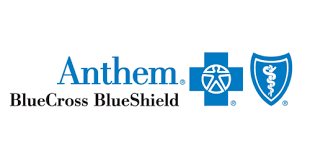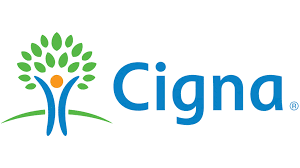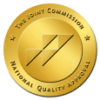When seeking addiction treatment, many people feel confused by the different options available. Understanding Drug Detox vs Drug Rehab in Tennessee is essential for making informed decisions about recovery. These terms are often misunderstood, but they represent distinct stages in the process of overcoming substance abuse. In this article, we’ll break down the key differences and explain how each option plays a crucial role in achieving long-term sobriety.
Fortunately, at Tennessee Detox Center, our private luxury rehab offers both medical detox and inpatient drug rehab. We know it can be confusing to determine whether you need to visit detox centers vs. rehab. That’s why we offer both treatment programs, along with luxury accommodations like private rooms, gourmet catered meals, and relaxing spaces. Our goal is to help you feel safe, comfortable, and ready to tackle any stage of recovery.
What Is Drug Detox?
Drug detox, short for detoxification, is the process of clearing the body of harmful substances. Its primary purpose is to manage withdrawal symptoms and stabilize people physically before further treatment begins.
Withdrawal symptoms can vary based on a substance. For instance, in alcohol withdrawal, people can suffer from incredibly dangerous symptoms such as:
- Delirium tremens: This condition involves confusion, rapid heartbeat, and dangerous changes in body temperature.
- Seizures: These can lead to coma or death if not treated promptly.
- Nausea and vomiting
- Shakes or tremors
- Heightened anxiety
- Irritability
Other substances, such as opioids (e.g., heroin, prescription painkillers) and benzodiazepines (e.g., Valium, Xanax), also have potentially life-threatening withdrawal symptoms. Drug detox helps manage these symptoms by providing medications and monitoring for potential complications.
Why Is Drug Detox Important?
Drug detox is an essential first step in the recovery process for individuals struggling with substance use disorder. Without proper detoxification, people may continue to experience cravings and other physical symptoms that make it difficult to achieve long-term recovery.
Because withdrawal symptoms can range from mild discomfort to life-threatening complications, detox often requires medical supervision, especially for those with a severe dependency. Unfortunately, some people might believe they can detox on their own, but this can be dangerous and even fatal.
When it comes to choosing between drug detox vs drug rehab, it’s always best to consult with a healthcare professional to determine the best course of action. In general, drug detox is the necessary first step in recovery, as it helps individuals break free from their physical dependence on drugs. However, it’s crucial to recognize that detox alone is not enough for long-term sobriety.
Types of Drug Detox
Just like there are different types of drug rehabs available, there are also various types of drug detox programs. Some common options include the following.
Medical Detox
Medical detox is conducted in a clinical setting with professional supervision. Medications may be used to manage withdrawal symptoms, making the process safer and more comfortable. Medical detox is highly recommended for substances like alcohol, benzodiazepines, and opioids due to their severe withdrawal risks. At Tennessee Detox Center, we specialize in offering supportive, medical detox in Nashville tailored to individual needs.
Our high-end treatment options for addiction include medical detox and 24/7 monitoring in a comfortable environment. During medical detox, you can take advantage of services like:
- Medication management
- Access to trained medical staff
- Monitoring of vital signs and symptoms
- Counseling and therapy options
- Nutritional guidance
When choosing between attending detox centers vs. rehab in Nashville, consider that detox is the crucial first step in overcoming addiction. Our team of medical professionals will support and guide you through this challenging process, ensuring your safety and comfort at all times.
Medication-Assisted Detox
Similar to medical detox, this approach adds medication support to reduce cravings or withdrawal symptoms. Some of the many medications you might be able to take on an outpatient basis include:
- Methadone: This medication is used to reduce cravings and withdrawal symptoms in individuals addicted to opioids.
- Buprenorphine: Also used for opioid addiction, this medication can shorten the duration of your detox and make it more manageable.
- Naltrexone: This medication works by blocking the effects of opioids or alcohol, reducing cravings and preventing relapse.
While medication-assisted treatment can be a helpful tool in recovery, it is not a cure for addiction. It must be used in conjunction with therapy and other forms of support to address the underlying issues that contribute to addiction. That’s why it’s vital to learn the difference between drug detox vs drug rehab and see which is right for you.
At-Home Detox
Some may consider detoxing at home. While this option may appear more convenient, it is risky, especially without medical oversight. Serious withdrawal symptoms can escalate quickly and should be handled by professionals.
There is a misconception that some substances, such as cannabis, don’t have “Real” withdrawal symptoms and only take a matter of willpower to stop. This is not true. Any substance that has addictive properties can cause withdrawal symptoms, and these should not be taken lightly.
Symptoms of withdrawal can vary from person to person and depend on the type of substance used. It’s essential to consult with a healthcare professional before attempting an at-home detox to determine the safest and most effective approach for your specific situation.
Detox Timelines for Different Substances
Perhaps the main difference between detox centers vs. rehab is that detox is shorter than inpatient or outpatient addiction treatment. But, even so, withdrawal and detox timelines vary depending on the substance. Below are estimated timelines for common substances:
- Alcohol:
- Symptoms usually begin within 6-12 hours of the last drink.
- Peak at 24-72 hours, with severe symptoms such as seizures or delirium tremens occurring during this period.
- Typically resolves within 5-7 days.
- Cocaine:
- Symptoms start as early as a few hours after use.
- Intense cravings and fatigue peak around 1-3 days.
- Symptoms usually subside within 1-2 weeks.
- Benzodiazepines:
- Symptoms typically begin 1-4 days after the last dose.
- Peak withdrawal symptoms can last 10-14 days but may persist longer, especially for long-term users.
- Opioids:
- Symptoms can start 6-12 hours after the last use (for short-acting opioids).
- Peak at 2-3 days and taper off at about 7-10 days.
Each individual’s experience can differ, so medical supervision is key to managing potential risks effectively. Fortunately, we at TN Detox Center know that each person’s detox journey is different. Whether you need to detox from opioids, alcohol, or other substances, we provide personalized treatment plans and medical support to help you safely withdraw from substances.
What Is Drug Rehab?
While detox addresses physical dependence, drug rehab focuses on the mental, emotional, and behavioral aspects of addiction. Drug rehab programs aim to help individuals understand the underlying causes of addiction, develop coping strategies, and prevent relapse.
No matter what type of drug rehab you explore, be it inpatient or outpatient, several key elements stay the same. These include:
- Individual therapy: One-on-one sessions with a therapist or counselor to help you work through personal issues and develop healthy coping mechanisms.
- Group therapy: Group sessions allow you to connect with others going through similar struggles, learn from their experiences, and build a supportive network.
- Education: Learning about the science of addiction, triggers, and relapse prevention strategies can help you better understand your addiction and make more informed decisions in recovery.
- Holistic therapies: Many drug rehab programs incorporate holistic approaches such as yoga, meditation, art therapy, or equine therapy to promote overall well-being and address underlying mental health issues.
- Aftercare planning: A comprehensive drug rehab program will also include aftercare planning to support individuals in maintaining their sobriety.
Types of Drug Rehab Programs
Just like detox has different timelines and formats, drug rehab can also vary greatly. Here are some of the most common types of drug rehab programs we offer at Tennessee Detox Center.
Inpatient Drug Rehab
In inpatient drug rehab, individuals live onsite at the treatment facility and receive intensive, round-the-clock care. This option is ideal for those with severe addictions or co-occurring mental health conditions. For people with severe addiction, inpatient drug rehab is often the next step after inpatient medical detox.
At Tennessee Detox Center, our luxury inpatient rehab offers more amenities than most other rehabs in Tennessee. These include a peaceful and serene setting, gourmet meals prepared by our on-site chef, and various therapeutic activities such as yoga, meditation, and weekly outings.
Partial Hospitalization Programs (PHP)
A hybrid of inpatient and outpatient programs, PHPs provide structured care during the day, allowing clients to return home in the evening. This option is ideal for those who have completed an inpatient program but still need more support during the transition back to their daily lives. PHPs typically consist of therapy sessions, group meetings, and other activities similar to those offered in residential programs.
Some benefits of partial hospitalization programs include:
- Cost-effective alternative to inpatient treatment
- Allows clients to return home in the evenings while receiving treatment
- Provides a supportive environment during the critical early stages of recovery
At Tennessee Detox Center, our PHPs are tailored to each client’s specific needs and may vary in duration depending on their progress. Our team of experienced therapists and addiction specialists work closely with clients to develop individualized treatment plans that address your addiction. We can offer PHPs 5 days a week up to 8 hours per day.
Intensive Outpatient Drug Rehab
Also known as IOP, intensive outpatient drug rehab involves regularly scheduled therapy and treatment sessions that allow individuals to continue living at home while receiving care. This option is ideal for those with less severe addictions or who have already completed inpatient drug rehab.
However, unlike outpatient rehab, IOP requires a higher level of commitment and time investment. Patients attend therapy sessions several times a week for a few hours at a time. At Tennessee Detox Center, we offer IOP for 3-5 days a week for 3-4 hours a day, providing comprehensive care. If you’re looking for a luxury rehab near me that provides different accommodations and treatment levels, Tennessee Detox Center is here to help.
Outpatient Drug Rehab
In outpatient drug rehab, flexible programs allow individuals to receive treatment while continuing daily responsibilities like work or family obligations. However, the level of care is less intensive compared to inpatient rehab. This is a great step-down option for those who have completed an inpatient program but still need ongoing support.
Outpatient drug rehab programs may also offer a range of services, including individual and group therapy, medication management, relapse prevention techniques, and aftercare planning. The length of the program can vary from a few weeks to several months depending on the individual’s needs.
At the Tennessee Detox Center, we offer personalized rehab programs that address the unique needs of each client, setting the foundation for long-term recovery.
Key Differences Between Detox Centers vs. Rehab
While detox and rehab often go hand-in-hand, they serve distinct purposes. Here’s how they differ.
Goals
The main goal of detox is to safely and effectively rid the body of substances or toxins. Detox programs typically last a few days to a week and are focused on managing withdrawal symptoms. Addiction rehab, on the other hand, aims to address the underlying causes of addiction and equip clients with the tools they need for sustainable recovery.
Treatment Approach
Detox centers primarily use medical interventions to manage withdrawal symptoms and ensure physical safety during the detox process. This may include medication-assisted treatment (MAT) or 24/7 monitoring by medical professionals. In rehab, therapy and counseling play a crucial role in addressing psychological aspects of addiction and developing coping strategies.
Length of Stay
As mentioned earlier, detox is a relatively short process, typically lasting around 5-7 days. In contrast, rehab programs can vary in length from 30 to 90 days or longer. The recommended duration of treatment depends on individual needs and may be adjusted based on progress during the program.
Aftercare Support
Both detox and rehab programs aim to provide clients with tools for long-term recovery. However, aftercare support is essential for maintaining sobriety once the formal treatment program ends. This may include continued therapy sessions, participation in support groups, or access to resources for relapse prevention.
Environment
When it comes to detox centers vs. rehab, the environment can play a significant role in an individual’s recovery journey. Detox centers often have a more clinical and structured atmosphere, as the focus is on safely managing withdrawal symptoms. In contrast, rehabs may offer a more relaxed and supportive setting for clients to address underlying issues and learn coping skills. At Tennessee Detox Center, our luxury rehab retreat provides a serene and healing environment for individuals to start their recovery journey.
Cost
The cost of treatment can also vary between detox and rehab programs. Detox centers are typically shorter in duration, so their overall cost may be lower than rehab programs that last several weeks or months. However, it’s essential to consider the long-term benefits of each type of program when assessing the cost.
Both are vital stages in the recovery process and should be part of a comprehensive treatment plan. At Tennessee Detox Centers, we’re proud to offer a full continuum of care for our clients, from detox to aftercare services. This ensures that our clients receive the support they need at every stage of their recovery journey.
The Importance of Integrated Treatment
No single solution works for everyone when it comes to recovery. A successful treatment plan often includes both drug detox and drug rehab. Detox lays the groundwork by addressing physical dependence, while rehab builds on that foundation by addressing psychological and social factors.
- Without detox, severe withdrawal symptoms may hinder healing.
- Without rehab, the individual may not have the skills or understanding needed to maintain sobriety.
At the Tennessee Detox Center, we provide integrated treatment to support you at every step. From medically-supervised detox to tailored rehab programs, our team of experts is here to guide you toward lasting recovery.
Choosing the Right Treatment Approach
Recovery is a life-changing decision that requires professional guidance. If you’re unsure where to start, whether to choose between drug detox vs drug rehab, or have other questions, reach out to our team at the Tennessee Detox Center. We are committed to helping you or your loved one achieve a healthier, addiction-free future.
Our team will work with you to determine the best treatment approach for your unique needs. This may include a combination of detox, therapy, and ongoing support. We understand that there is no one-size-fits-all solution to addiction recovery, which is why we offer personalized care and support every step of the way. Call us today at (629) 262-5675 to explore drug detox and drug rehab in Nashville, and take the first step towards a life free from addiction.
No, detox and rehab are two different stages of addiction treatment. Detox focuses on the physical aspect of addiction by helping individuals safely and effectively rid their bodies of drugs or alcohol. Rehab, on the other hand, addresses the psychological and behavioral aspects of addiction through therapy and other treatment modalities. Both are important steps in achieving long-term recovery.
Detox may be necessary for those who are physically dependent on drugs, while rehab focuses more on addressing the underlying causes of addiction and developing coping skills for long-term recovery. It is important to consult with a medical professional or addiction specialist to determine which option is best for you.
Detox can be a challenging process both physically and emotionally as your body adjusts to being without drugs. You may experience withdrawal symptoms such as nausea, headaches, anxiety, and cravings. However, our team will provide medical support and prescribe medication if needed to help manage these symptoms and make the detox process as comfortable as possible.
After completing detox, you will transition into a treatment program that best suits your needs. This may include residential treatment, intensive outpatient programs, or regular outpatient treatment. Our team will work with you to create an individualized treatment plan that addresses your specific needs and goals for recovery.
Coverage for detox and rehab programs varies depending on your insurance provider and plan. However, most insurance plans do provide coverage. Our team can assist you in understanding your insurance benefits and determining what costs may be covered.

| Medically Reviewed By: Board-Certified Psychiatrist and Addictionologist |

| Clinically Reviewed By: Board Certified Clinical Social Worker |
Check Your Insurance Coverage






Your insurance may pay for all of your addiction treatment. Call for a confidential conversation with a treatment provider about your financial options.

Get Family Support Now
Supporting Families Through Recovery
We understand addiction affects the whole family. Our comprehensive family program helps rebuild trust and restore relationships.
Weekly Family Therapy Sessions
Educational Workshops
Support Groups
Communication Skills Training
Get Family Support Now



